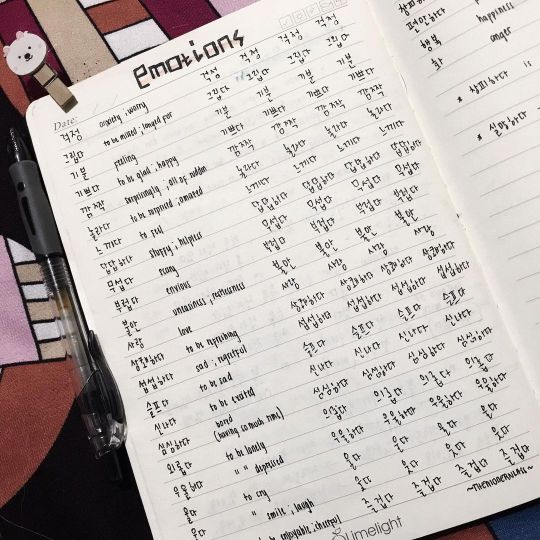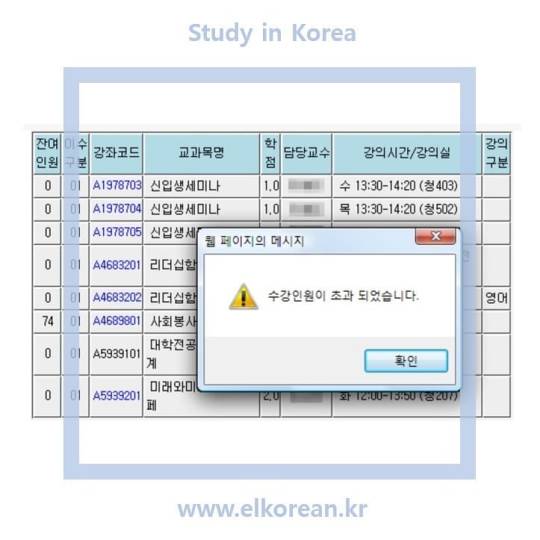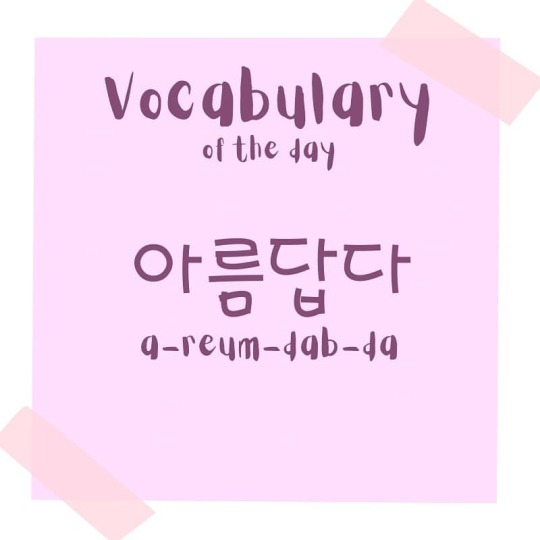#koreanvocabulary
Photo

오늘의 어휘학습 (Today’s Vocabulary) : Emotions — tags: #korean #koreanstudy #koreanlanguagelearning #studykorean #studykoreanwithme #languagelearning #languagestudy #vocabulary #reviewingvocabulary #koreanvocabulary #vocabstudy #vocabularystudy #studyreview #notes #koreannotes #studywithme #koreanstudytime #한국어배우기 #한국어공부 #한국어 #어휘공부 #어휘학습 #studygram https://www.instagram.com/p/CqWz3rFhDZ_/?igshid=NGJjMDIxMWI=
#korean#koreanstudy#koreanlanguagelearning#studykorean#studykoreanwithme#languagelearning#languagestudy#vocabulary#reviewingvocabulary#koreanvocabulary#vocabstudy#vocabularystudy#studyreview#notes#koreannotes#studywithme#koreanstudytime#한국어배우기#한국어공부#한국어#어휘공부#어휘학습#studygram
7 notes
·
View notes
Text
Puppies are in the basket. Fill in the blank in Korean. Then, swipe to check the answer.
instagram
#learnkoreanwords,#koreanvocabulary,#koreanvocaboftheday,#koreanwordsoftheday,#freekorean,#puppy,#koreanspeaking,#koreanstudying,#koreanstudynotes,#bts,#blackpink,#kpoplover,#kdramalovers
#learnkoreanwords#koreanwordsoftheday#blackpink#koreandramalovers💕#bts#kpoplovers#koreanstudynote#koreanspeaking#koreanvocabulary#koreanbeginners#Instagram
1 note
·
View note
Photo

Follow @kapilbalharanebsarai Follow @kapilbalharanebsarai Follow @kapilbalharanebsarai Follow @kapilbalharanebsarai Follow @kapilbalharanebsarai Follow @kapilbalharanebsarai Follow @kapilbalharanebsarai . . . . Like Share Subscribe . . . . #vocabulary #vocabularywords #spanishwords #englishvocabulary #englishvocabularyinuse #vocabularyforielts #newenglishwords #englishvocabularywords #dailyuseenglishwords #cambridgevocabularyforielts #basicenglishwords #foodvocabulary #academicwordlist #cambridgevocabulary #vocabularyinuse #mnemonicdictionary #englishwordslist #koreanvocabulary #satwords #vocabularylist #grevocabulary #vocabularybuilder #businessenglishvocabulary #businessvocabulary #academicvocabulary #advancedvocabulary #advancedenglishwords #kitchenvocabulary #satvocabulary #newvocabularywords (at Kushagra Institute For Ssc) https://www.instagram.com/p/CdaaTslJ7l6/?igshid=NGJjMDIxMWI=
#vocabulary#vocabularywords#spanishwords#englishvocabulary#englishvocabularyinuse#vocabularyforielts#newenglishwords#englishvocabularywords#dailyuseenglishwords#cambridgevocabularyforielts#basicenglishwords#foodvocabulary#academicwordlist#cambridgevocabulary#vocabularyinuse#mnemonicdictionary#englishwordslist#koreanvocabulary#satwords#vocabularylist#grevocabulary#vocabularybuilder#businessenglishvocabulary#businessvocabulary#academicvocabulary#advancedvocabulary#advancedenglishwords#kitchenvocabulary#satvocabulary#newvocabularywords
0 notes
Photo

If you're learning Korean, you may come across words that end in either 나다 (nada) or 내다 (naeda), such as 끝나다 and 끝내다, 고장나다 and 고장내다. Both 나다 and 내다 can be used as standalone verbs or combined with other words to create compound verbs. These verbs can have complex meanings and depend heavily on the context in which they are used.
To clarify the differences between the two, let's break it down:
(1) "나다" describes something that happens on its own or spontaneously, without external influence. It can be translated as "to come up," "to arise," or "to occur".
For example"
텔레비전이 고장났어요.
(The television broke down)
In this case, 고장나다 is used because the television broke down on its own, without any external force causing it.
Another example:
영화가 끝나서 집에 가야 돼요.
(The movie is finished, so I have to go home.)
Here, 끝나다 is used because the end of the movie is a natural occurrence that happens on its own.
Note that 나다 is often used with the particle 이/가 to indicate the subject of the sentence, as in:
소리가 나다: to sound (sound coming up on its own)
소방차의 경적 소리가 나서 모든 차들이 길을 비켜갔어요.
(The siren of the fire truck went off, and all the cars moved out of the way)
화가 나다: to get angry (the feeling of anger arising within the speaker)
난 지금 엄청 화가 났어. 건드리지 마.
(I’m really angry right now. Don’t touch me.)
(2) "내다" describes something that happens as a result of external influence or intervention. It can be translated as “to make something come up” or “to cause something to arise."
For example:
누군가 텔레비전을 고장냈어요.
(Someone broke the television.)
In this case, 고장내다 is used because the television breaking down was caused by an external force.
Another example:
선생님이 수업을 끝내냈어요.
(The teacher finished the class.)
Here, 끝내다 is used because the end of the class was caused by the teacher actively ending it.
Note that 내다 is often used with the particle 을/를 to indicate the object of the sentence, as in:
소리를 내다: to make a sound (actively making a sound)
그들은 악기를 연주하여 아름다운 소리를 냈어요
(They played their instruments and made beautiful sounds.)
화를 내다: to get angry (the anger is showed outside verbally or by actions)
화가 나도 다른 사람에게 화를 내면 안 돼.
(Even if you’re angry, you shouldn’t take it out on other people.)
It's important to note that not all Korean verbs that end with either “나다” or “내다” have an equivalent form ending in the other.
In summary, “나다” is used when something happens spontaneously or independently, while “내다” is used when something happens as a result of external influence or intervention.
#KoreanGrammar #LearnKorean #KoreanVocabulary
🌸 🌼 🌻
Support me at: https://koreanlanguageloving.my.canva.site/
#한국어#한국어 문법#한국어 연습#한국어 공부하기#Hangul#Korean Language#korean langblr#Korean Vocabulary#learn korean#Study Korean#한국어공부중#한국어공부해요#한국어공부#한국어공부하기#한국어능력시험
123 notes
·
View notes
Text
Animales I
다람쥐: ardilla
당나귀: asno
고래: ballena
말: caballo
염소: cabra
캥거루: canguro
얼룩말; cebra
사슴; ciervo
토끼: conejo
물개: foca
돌고래: delfín
코끼리: elefante
하마: hipopótamo
기린: jirafa
코알라: koala
사자; león

#coreano#aprendecoreano#learnkorean#vocabulary#koreanvocabulary#koreanvocab#coreanovocabulario#animatic#animals#wildlife#animalescoreano
33 notes
·
View notes
Text

Vocabulary from TRAUMA (Aquarium) by ONEWE
#langblr#language#languages#korean#korean language#koreanvocabulary#korean vocabulary#onewe#kpop songs#kbands
70 notes
·
View notes
Photo

할 일 있어요 ~ I have things to do, I have work to do 할 일 많아요 ~ I have a lot to do 하다- to do 일- work, duty, task 있다- to have, exist 많다- to be a lot Verb stem + ㄹ/을 + Noun: used to describe a noun in the future tense 만날 사람- person that I will meet 할 일- work that I will do Lit. 할 일 있어요- I have work that I will do You may also see 해야 할 일 있어요- I have work I need/should/ have to do 할 일 있어요?- do you have anything to do? 아직 할 일 많아요- there is still a lot to do #korean #korea #koreanlanguage #koreanstudy #koreanlearning #language #koreanwords #koreangrammar #koreansoul #koreansoulstudy #studygram #studyinspo #한국어공부 #한국어 #한국말 #한국말공부 #studygram #studyingkorean #learnkoreanlanguage #koreanvocab #koreanvocabulary #koreanaesthetic #koreans #koreanculture #koreangirl #한국어배우기 #한국어를 https://www.instagram.com/p/CBlVLlznPA5/?igshid=6y88x7b7h6f1
#korean#korea#koreanlanguage#koreanstudy#koreanlearning#language#koreanwords#koreangrammar#koreansoul#koreansoulstudy#studygram#studyinspo#한국어공부#한국어#한국말#한국말공부#studyingkorean#learnkoreanlanguage#koreanvocab#koreanvocabulary#koreanaesthetic#koreans#koreanculture#koreangirl#한국어배우기#한국어를
76 notes
·
View notes
Photo

{ #koreanphrase } || source: koreanclass101
#koreangrammar#koreanlesson#koreanaccent#koreanclass101#koreanlanguage#askinkorean#learnkorean#studykorean#koreanstudying#korean#koreanvocabulary#koreanwords#koreanphrase#practicekorean#ilovekorean#favourites#updates#IG: join.a.groupchat
3 notes
·
View notes
Photo

유학 한국어 (study in Korea) – 수강 신청 (class application) 경미 : 태호야. 수강 신청 날짜가 언제지? 태호 : 다음 주 월요일이야. 경미 : 전필은 몇 과목을 신청할 지 생각 중이야. 태호 : 지도 교수님에게 물어보는 것도 생각해봐. Kyeongmi: Taeho. When is the class application date? Taeho: It’s next Monday. Kyeogmi: I’m thinking of how many subjects to apply for the required major. Taeho: Think about asking your advisor. Learn Korean words – 수강 신청 (soogang shincheong) enrollment, class application 전필 (Abbreviation of 전공필수) (jeonpil) the required major 교수 (gyosoo) professor 지도 교수 (jido gyosoo) an (academic) adviser 더 자세한 것은 한국어 선생님과 함께 공부하세요. 오늘도 행복하세요. Learn more with a Korean teacher. Be happy today. Find your Korean class. www.elkorean.kr #elkorean #Korean #learnKorean #studyKorean #speakKorean #Koreanlanguage #Koreanstudying #Koreanlesson #Koreanclass #hangeul #hangul #TOPIK #Koreangrammar #Koreanaccent #Koreanvocabulary #Koreanwords #Koreanculture #한글 #한국어 #한국어선생님 #Koreanteacher #Koreantutor #StudyinKorea #유학한국어
#elkorean#korean#learnkorean#studykorean#speakkorean#koreanlanguage#koreanstudying#koreanlesson#koreanclass#hangeul#hangul#topik#koreangrammar#koreanaccent#koreanvocabulary#koreanwords#koreanculture#한글#한국어#한국어선생님#koreanteacher#koreantutor#studyinkorea#유학한국어
4 notes
·
View notes
Photo

오늘의 어휘학습 (Today’s Vocabulary) : Emotions — tags: #korean #koreanstudy #koreanlanguagelearning #studykorean #studykoreanwithme #languagelearning #languagestudy #vocabulary #reviewingvocabulary #koreanvocabulary #vocabstudy #vocabularystudy #studyreview #notes #koreannotes #studywithme #koreanstudytime #한국어배우기 #한국어공부 #한국어 #어휘공부 #어휘학습 #studygram https://www.instagram.com/p/CqWzv5DhYoj/?igshid=NGJjMDIxMWI=
#korean#koreanstudy#koreanlanguagelearning#studykorean#studykoreanwithme#languagelearning#languagestudy#vocabulary#reviewingvocabulary#koreanvocabulary#vocabstudy#vocabularystudy#studyreview#notes#koreannotes#studywithme#koreanstudytime#한국어배우기#한국어공부#한국어#어휘공부#어휘학습#studygram
0 notes
Text
instagram
Guess what the bird is called in Korean. Then, swipe to check the answer.
#learnkoreanwords,#koreanwordsoftheday,#koreanvocabulary,#koreanstudynotes,#koreanspeaking ,#koreanconversation,#kpoplover,#koreandramalove,#studyingkorean,#magpie,#learnkoreanwith,#btsarmy,#koreandailywords
#learnkoreanwords#koreanwordsoftheday#blackpink#bts#koreanspeaking#koreandramalovers💕#kpoplove#koreanstudying#magpie#koreanvocab#Instagram
0 notes
Video
youtube
(028 Noun) Learn Korean Nouns for Beginners: 10 Common Words (with Engli...
0 notes
Photo

아름답다 romanization: a-reum-dab-da definition: to be beautiful ... note: 비읍 (ㅂ) sounds like somewhere between "b" and "p". ... If you are learning Korean, the best way to understand the words and senteces better is to study and understand Hangul first. Learning to read Korean instead of relying ng Romanization is a great help to improve your skills. Also, you'll get the "true" pronounciation/sound of the word. Keep on learning :)) #learnkorean #한국 #항국어 #한굴 #korean #language #koreanvocabulary #koreaboo #koreansentence #koreanotes #studykorean #koreanclass #koreanstudygram #bilingualeducation #koreanclass #한국어슬랭 #한국어배우기 #한국어공부중 #selfstudy #fighting #파이팅 #화이팅 #easylearningkorean #vocabularyoftheday #koreanword #learnlaguage #koreanverb #koreanverbs #learnlanguages #dailykorean (at Philippines) https://www.instagram.com/p/CDIWcUiAKTX/?igshid=thimg2wr9rd
#learnkorean#한국#항국어#한굴#korean#language#koreanvocabulary#koreaboo#koreansentence#koreanotes#studykorean#koreanclass#koreanstudygram#bilingualeducation#한국어슬랭#한국어배우기#한국어공부중#selfstudy#fighting#파이팅#화이팅#easylearningkorean#vocabularyoftheday#koreanword#learnlaguage#koreanverb#koreanverbs#learnlanguages#dailykorean
1 note
·
View note
Photo

날지 못하면 달려라. 달리지 못하면 걸어라. 그리고 걷지 못하면 기어라, 당신이 무엇을 하든 앞으로 가야 한다는 것만 명심해라.
– 마틴 루터 킹 주니어
If you cannot fly then run. If you cannot run, then walk. And, if you cannot walk, then crawl, but whatever you do, you have to keep moving forward.
– Martin Luther King Jr.
✏️ 𝐕𝐨𝐜𝐚𝐛𝐮𝐥𝐚𝐫𝐲:
날다: fly
달리다: run, dash
걷다: walk
기다: crawl
그리고: and
무엇: anything, something
앞: front
가다: go
명심하다: keep (sth) in mind, bear (sth) in mind, be sure to remember
✏️ 𝐆𝐫𝐚𝐦𝐦𝐚𝐫:
1. V~지 못하다 = cannot V
E.g. 날지 못하다 = cannot fly/ be unable to fly
2. V~아/어 라 = used when the speaker demands or directs the listener for doing some work.
E.g. 날지 못하면 달려라 = If you can't fly, run
#KoreanVocabulary #KoreanLanguage #quotesdaily
🌸 🌼 🌻
Support me at: https://koreanlanguageloving.my.canva.site/
#Korean Language#korean langblr#Learn Korean#Study Korean#Hangul#Korean Quotes#positive quotes#한국어 배우기#한국어 단어#한국어 공부하기#한국어배우기#한국어 연습#한국어공부중#한국어#한국어공부해요#한국어공부#한국어공부하기
74 notes
·
View notes
Text
Tonton "Memperkenalkan Diri Dalam Bahasa Korea Bagian 2" di YouTube
0 notes